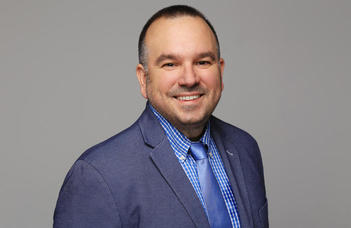Mitigation and adaptation as an economist

You did your PhD studies at UC Berkeley. Who was your supervisor and what was your thesis about?
I wrote my dissertation under the supervision of Gerard Roland, Professor of Economics and Political Science, at the University of California, Berkeley. My topic was on religion and political economy with focus on Russia and Israel and my thesis has been published as a book entitled Religion & Comparative Development: The Genesis of Democracy & Dictatorship by Edward Elgar Publishing in its series New Thinking in Political Economy.
After six years in the USA, how have you returned to Europe, more specifically to Germany?
I was awarded a DAAD grant and I had the opportunity to visit Germany as a PhD student from the United States. The experience was very positive and when I was offered a postdoc position at the Center for European Economic Research in Mannheim I decided to stay.
Currently, you are an associate professor at the prestigious Free University of Berlin. Tell us about the courses you offer there.
My teaching portfolio includes economic systems at the Bachelors level and comparative development, economic history of Eastern Europe and the Middle East, international macroeconomics and economics of climate change at the Masters level. I am currently designing an advanced course on comparative institutions and political economy to be offered for our structured doctoral program in Economics (Berlin School of Economics), which is run jointly with the Humboldt University of Berlin, Technical University of Berlin and Potsdam University.
You also have a vivid cooperation with several leading universities. Which are the most fascinating (research) projects you are currently doing with them?
In collaboration with the Hoover Institution at Stanford University I am currently completing a book manuscript on the political economy of the Russian Secret Police (Okhrana), which draws evidence from thousands of former classified documents and showcases the impact and the constraints of Russian intelligence in European and international political economies. Moreover, I am an alumnus of the IPC-Mercator fellowship at the Istanbul Policy Center of Sabanci University, Turkeys leading university, where I have been working on a research project related to energy transitions in Turkey and their impact on district-level socio-economic development.
Your course at BESU will be about the economics of climate change. Why is it important to learn this subject? Are you optimistic that economists will really be able to contribute to the fight against climate change?
Climate change affects our everyday lives more than anything else: nutrition, accommodation, professional and consumer choices, life expectancy, basically everything that we do is related to climate change. What is important to keep in mind is that we as economists have to deal with this self-inflicted phenomenon in two ways: mitigation and adaptation. Mitigation means fighting climate change directly with the use of economic instruments. Adaptation means adjusting to this new reality and changing our economic systems, while taking into account the disproportionate burden carried by the countries of the Global South. Of course, we can do a lot as economists to combat this phenomenon that undermines our planet and our livelihoods globally.
You already offered a course in the Summer University of the Faculty of Economics at ELTE in 2019 and 2022. What were your experiences about the Summer Uni and the participating students that time?
I have been very satisfied with the quality and motivation of the students both in 2019 and 2022 and this is why I am returning back to Budapest, this time with a new and innovative course. I am very excited and look forward to the useful discussions and interactions with the students of the Summer University.

